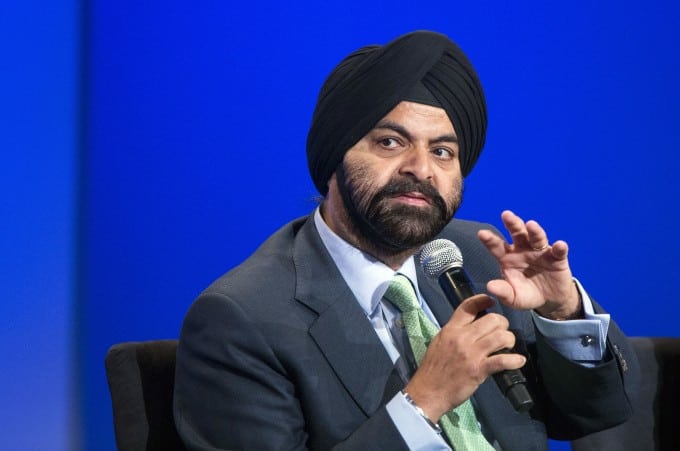Mastercard’s blockchain plan gets down to business

Blockchain is a bigger opportunity for business transactions than consumer transactions, according to Mastercard president and CEO Ajay Banga, who is poring over the technology to build use cases for corporate users.
“It’s early days so don’t expect it to be a switch that gets turned on tomorrow,” Banga said during Tuesday’s third-quarter earnings call.
Blockchain and other distributed ledgers are the main technology that underpins bitcoin and other virtual currencies, though more traditional banks and financial institutions are seeking uses for blockchain such as security and cost reduction.
 Ajay Banga, president and chief executive officer of Mastercard Inc. Bloomberg News
Ajay Banga, president and chief executive officer of Mastercard Inc. Bloomberg NewsOne of the main uses for blockchain has been in cross-border payments, as the technology is used to remove third parties such as correspondent banks, shaving time and cost for international payments, and opening the market to smaller companies that process more frequent, lower-value payments. Banga did not mention correspondent banking, but did say there is more room to use blockchain to solve problems in B-to-B payments than consumer payments.
Mastercard is investing in its own blockchain platform to create uses and to learn what’s possible for the technology. The Purchase, N.Y.-based card network is also building application programming interfaces and is investing in its digital currency group, which allows it to study how other parties use blockchain.
“We believe the challenges of bringing speed and transparency and bringing down costs in domestic and cross-border payments are more interesting in B-to-B than trying to find tech that’s looking for a problem to solve in consumer payments,” Banga said, adding other advancements such as faster payments through ACH could also benefit use cases in B-to-B payments.
Blockchain is one of several technologies Mastercard is investing in for B-to-B payments. Other investments include Mastercard’s acquisition of VocaLink, its use of APIs and a B-to-B hub, Banga said. Through a partnership with IBM, VocaLink can expedite the development of real-time processing for digital payments. And with VocaLink in-house, Mastercard can expand real-time payments to dozens of countries, though Banga cautioned the project will still be challenging.
“Our VocaLink strategy depends on where we enter different marketplaces,” Banga said. “Most ACHs are very domestic.”
For the third quarter ending Sept. 30, Mastercard reported an increase of about 17.5% in net income of $1.4 billion, or $1.34 per share. That’s up from $1.2 billion, or $1.08 per share, from the 2016’s third quarter. Wall Street analysts projected $1.23 per share on revenue of $3.28 billion. Banga reported strong economies in most regions propelled the growth. Visa also reported strong earnings for the past quarter.
Under investor questioning, Banga weighed in on the Equifax breach, contending the security challenge is less about current exposed cards than ID fraud over a longer term. About 300,000 cards have been compromised across all brands as a result of the breach, which is far less than other breaches, Banga said.
“But the issue is, you’ll see some elements of ID fraud. It’s tough to figure out if that will be because of Equifax or if it’s a case where cybertheft is more normal in an Internet of Things world,” he said. “So I wouldn’t jump to any conclusions at this point.”
